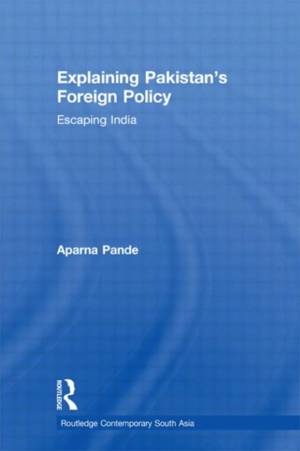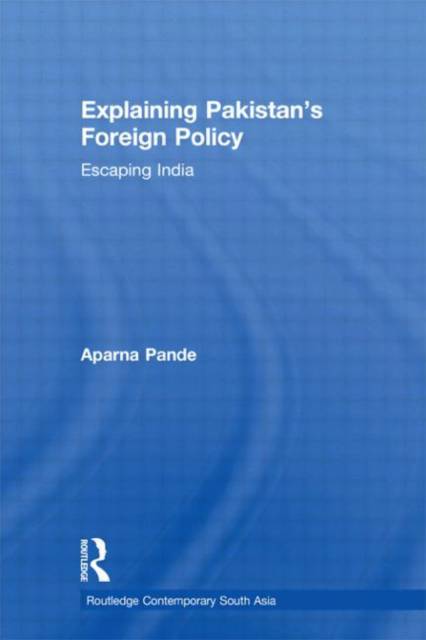
- Afhalen na 1 uur in een winkel met voorraad
- In januari gratis thuislevering in België
- Ruim aanbod met 7 miljoen producten
- Afhalen na 1 uur in een winkel met voorraad
- In januari gratis thuislevering in België
- Ruim aanbod met 7 miljoen producten
Omschrijving
Pakistan has over the decades become a hotbed for the terrorist ideology often referred to as Jihadism. This book investigates the underlying principles of Pakistan's foreign policy from 1947 until the present day, and explains the rise of Jihadism as an offshoot of Pakistan's security concerns.
The book goes on to discuss that from its inception as a separate state, Pakistan's foreign policy focused on 'seeking parity' with India and 'escaping' from an Indian South Asian identity. The desire to achieve parity with its much larger neighbour led Pakistan to seek the assistance and support of allies. The author analyses the relationship Pakistan has with Afghanistan, United States, China and the Muslim world, and looks at how these relationships are based on the desire that military, economic and diplomatic aid from these countries would bolster Pakistan's meagre resources in countering Indian economic and military strength. The book presents an interesting contribution to South Asian Studies, as well as studies on International Relations and Foreign Policy.
Specificaties
Betrokkenen
- Auteur(s):
- Uitgeverij:
Inhoud
- Aantal bladzijden:
- 256
- Taal:
- Engels
- Reeks:
Eigenschappen
- Productcode (EAN):
- 9780415599009
- Verschijningsdatum:
- 9/03/2011
- Uitvoering:
- Hardcover
- Formaat:
- Genaaid
- Afmetingen:
- 155 mm x 236 mm
- Gewicht:
- 521 g

Alleen bij Standaard Boekhandel
Beoordelingen
We publiceren alleen reviews die voldoen aan de voorwaarden voor reviews. Bekijk onze voorwaarden voor reviews.









